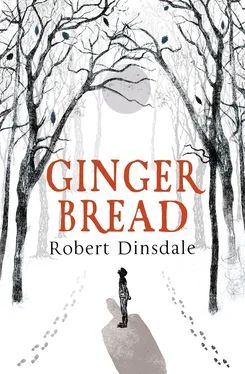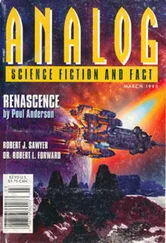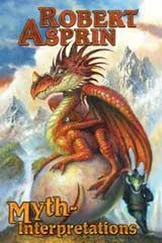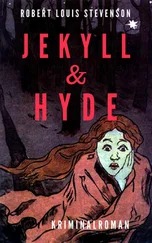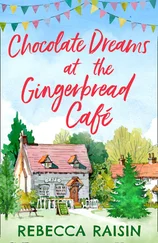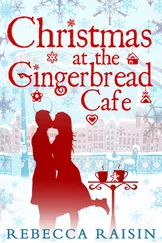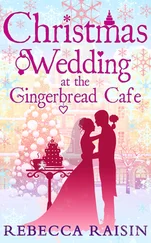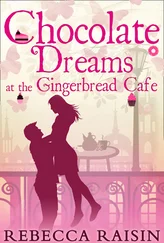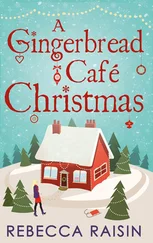Before Grandfather can elaborate, the bus stutters to a stop, the driver barks out a single word – schoolhouse! – and the boy must scramble to get off.
‘Are you coming, papa?’
It seems that Grandfather will take him only to the edge of the bus, but there must be a pleading look in the boy’s eyes, because then he comes down to the slushy roadside and, with one hand in the small of his back, accompanies the boy to the schoolhouse gates. There are other children here, and other mamas and papas, but none so old and out of place as Grandfather.
He looks for faces he knows, and finally finds one: the boy Yuri, who does not run with the hordes but paces the school fence every morning and afternoon, muttering to himself as he dreams. Yuri is good at drawing and good at stories, but he is not good at being a little boy like all of the rest. He is about to go to him when a figure, the vulpine woman who does typing in the headmistress’s study, appears on the schoolhouse steps and begins clanging a bell.
‘Will you come, papa, when school’s done?’
Grandfather has a sad look in his eyes, which makes the boy remember his promise.
‘Tonight and every night, boy.’
‘And you’ll look after mama?’
Grandfather nods.
Next come words the boy knows he should not have heard. ‘And hold her, when it’s time?’
Grandfather opens his leathery lips to speak, but the words are stillborn. ‘Off with you, boy,’ he finally says.
The boy turns and scurries into school.
In lessons, Mr Navitski asks him about his mama and he lies and says his mama’s getting better, which will stop them asking and, in a strange way, make it so he doesn’t have to lie again. Mr Navitski is a kind man. He has black hair in tight curls that recede from his forehead to leave a devil’s peak, but grow wild along the back of his neck as if his whole pate is slowly stealing down to his shoulders. He wears a shirt and braces and tie, and big black boots for riding his motorcycle through town.
In the morning there is drawing, and he makes a drawing of Grandfather: big wrinkled mask and drooping ears, but eyes as big as silver coins and dimples at the points of the greatest smile. Yuri, who doesn’t say a thing, works up a picture of a giant from a folk tale – and when Mr Navitski lines them up for the class to see, the boy is bewildered to find that Yuri’s giant and his Grandfather have the same sackcloth face, the same butchered ears, the same bald pate and fringe of white hair. The only difference, he decides, is in the eyes, where simple flecks of a pencil betray great kindness in Grandfather and great malice in the giant.
In the afternoon it is history. This means real stories of things that really happened, and when Mr Navitski explains that, one day, everything that happens in the world will be a history, it thrills the boy – because this means he himself might one day be the hero of a story. He looks at Yuri sitting at the next desk along and wonders: could Yuri be the hero of a story too? He is, he decides, more like the hero’s little brother, or the stable-hand who helps the hero onto his horse before he rides off into battle.
On the board, in crumbling white chalk, Mr Navitski writes down dates. ‘Who can tell me,’ he begins, ‘what country they were born in?’
Hands fly up. The boy ventures his too late, and isn’t asked, even though he’s known the answer all along. This kingdom of theirs is called Belarus.
‘And who can tell me,’ Mr Navitski goes on, ‘what country their mamas and papas were born in?’
More hands shoot up. Some cry out without being asked: Belarus! Because the answer is obvious, and the prize will go to whoever gets there most swiftly.
But Mr Navitski shakes his head. ‘Trick question!’ he beams. ‘This country wasn’t always Belarus, was it?’
Yuri shakes his head so fiercely it draws Mr Navitski’s eye. ‘What country was it, Yuri?’
Yuri can only shake his head again, admitting that he doesn’t know.
‘Well, Yuri’s half got it right. Because once, not so very long ago – though long ago might mean a different thing to you little things – Belarus wasn’t truly a country at all. In just a few short years, it was part of many other countries and had different names: Poland, Germany, a great, sprawling land called the Soviet Union. And before that it was part of the Russias. Who knows what the Russias are?’
Though Yuri throws his hand up, this time Mr Navitski knows not to ask.
‘It’s an empire,’ says the boy.
‘Well, half-right again … Russia was a nation, with emperors called tsars, and it stretched all the way from the farthest east to the forests where we live today. What’s special about those forests?’
Now there is silence, all across the class.
‘Well, I’ll tell you,’ he says. ‘Once, all of the world was covered in forests. But, slowly, over the years, those forests were driven back – by people just like us. They chopped them down to make timber, and burned them back to make farms. But this little corner of the world where we live is very special. Because half our country is covered in forests that have never been chopped or cut back. The oaks in those forests are hundreds of years old. They’ve grown wizened and wise. And those forests have seen it all: the Russias, and Poland, and Germany, emperors and kings and too many wars. Those trees would tell some stories, if only they could speak!
‘And the truly amazing thing about Belarus is that, no matter how many times an empire came and made us their own, no matter how many soldiers and armies tramped through this little country and carved it up … not once, in the whole of history, have those forests ever been conquered. Those forests will always be, and have always been, ruled by no man or beast. And that makes them the wildest, most free place on Earth …’
The boy looks down. Yuri has been desperately drawing trees on his piece of paper. In between, he scrawls words: wild … free … Belarus . He presses down hard, promptly breaks the tip of his pencil, and looks up with aggrieved eyes – but the boy just keeps on staring at the page.
At the end of the day, Grandfather is waiting. As the boy hurries to meet him, something settles in his stomach: a promise has been fulfilled.
‘Mama?’ he asks, before he even says hello.
‘She’s …’
The boy pulls back from Grandfather’s touch, shrinking at eyes that glimmer with such goodness.
‘… waiting for you,’ Grandfather goes on. ‘She made you her kapusta. ’
To get back to the tenement, they have to take another bus. This time, it feels better to sit next to Grandfather, which is foolish because the difference is only a few short hours. Now he can ask Grandfather questions, and Grandfather will answer: how long have you lived in the tenement? How old are you, papa, and what was it like so long ago? And, most important of all, what kind of story will it be tonight, papa, when we have our story?
The tenement is filled with the smells of spice and smoked kielbasa , that rubbery sausage on whose tips the boy remembers suckling, like a piglet, when he was very small.
He leaves Grandfather at the door, where the old man bends to remove his black jackboots, and gambols through the steam to collide with mama in the kitchen. He is too strong, and mama flails back, catching herself on the countertop.
‘Easy, little man!’
She smothers him with kisses. When he pulls his arms from around her neck, he sees that she is wearing a kind of white handkerchief across her head. It gives her the air of a pirate, or a pilot downed in a desert.
‘What is it?’
‘I have a special job for you. But not until after dinner …’
Читать дальше
